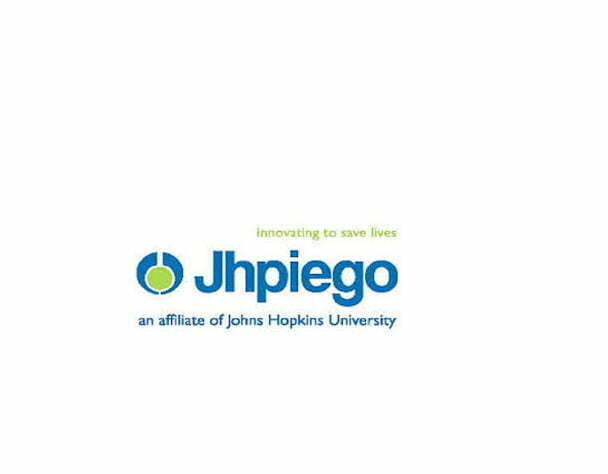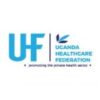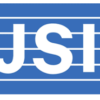JOB DETAILS:
1. Introduction
As the USAID/Urban Health Activity works around reimagining primary health care within the urban health context, transforming the health systems in Kampala Capital City Authority (KCCA), Mukono and Wakiso districts will require among others interventions deeper understanding gender, youth and social inclusion. The USAID/Urban Health Activity proposes to creatively tap our deep understanding of context, evidence base and state of the art methods to marshal common cause for a sustained, healthier future for all.
Together with the MoH, Kampala Capital City , communities and engaged citizens, our efforts will result in a transformed urban health system which assures integrated, quality care takes place at the appropriate level, appropriate time and appropriate location—thereby optimizing use of resources, decongesting public facilities and elevating health and wellbeing. We will reframe traditional ideas of care offered only in “brick and mortar” buildings, making care more accessible through technology-enabled information and service platforms, online marketplaces like Viya Health, self-care options and cost-reduction and savings strategies. For those who need facility-based or higher-level care, we will streamline emergency transport and referrals; establish a replicable market-based accreditation system to improve quality and accountability in the private sector; and build on past lessons to ensure client-centered, gender and youth-responsive care across sectors. We will strengthen public-private partnerships for health (PPPH), foster new partnerships with local and regional private sector stakeholders; leverage innovations and existing experiences in digital health; and undertake rapid prototyping, testing and scale up of new approaches for diagnostics and commodity access via small grants. In these ways, we will facilitate an enabling environment for a diverse set of stakeholders to increase access to a basic package of health services, reduce an overreliance on overwhelmed public facilities and improve the viability and scope of the private sector to meet urban communities’ unique healthcare needs.
The USAID Uganda Urban Health Activity aims to achieve the following result areas:
IR 1: Quality of Care Improved
IR 1.1: Quality of Health Services Improved
IR 1.2: Patient Referral Pathways/Systems Strengthened
IR 2: Private Health Sector Service Provision Strengthened
IR 2.1: Accreditation, Standards and Quality Assurance Systems Improved
IR 2.2: Sustainable and Equitable Business Model Implemented
IR 2.3: Implementation of PPPH Improved
IR 3: Community Health Strengthened
IR 3.1: Adoption of Healthy Behaviors Improved
IR 3.2: Access to Community Health Services Improved
IR 3.3: Community Surveillance Enhanced
IR 4: Coordination and multisectoral collaboration for Urban Health Programming Improved
IR 4.1: Coordination and multisectoral collaboration for Urban Health Programming Improved
IR 4.2: Supply Chain Systems Strengthened
IR 4.3: Data Management and Utilization Strengthened
3. GYSI purpose and scope
In line with the project’s implementation framework, there is a need to assess the dynamics of gender, youth, and social determinants and their influences on urban health. The proposed study seeks to understand the different needs and constraints faced by different social identity groups and how these impact on their health outcomes. The findings from this assessment will inform the design of a Gender, Youth, and Social Inclusion (GYSI) action plan for the Urban Health Project. The GYSI will be aligned to the six domains of gender analysis- Access, Knowledge, Beliefs and Perception, practices and participation, time and space, laws and policies, and power and decision-making. It is envisioned that an intersectional lens will be applied in the design and implementation of the GYSI.
The USAID/Urban Health Activity is seeking to hire a consultant to undertake a Gender, Youth and Social Inclusion (GYSI) assessment within the Target Districts of on the to undertake this assignment with supervision from the Technical Director.
The study will be implemented in 3 project districts – Kampala, Mukono and Wakiso duration withing 45 days and will be conducted using mixed methods.
4. GYSI assessment goal
The overall goal of the GYSI assessment is to provide an in-depth understanding of the gender, youth and social determinants and their influences on the health outcomes of the different population groups targeted under the urban health project. The assessment will inform GESI integration into the project interventions at community level, service delivery, stakeholder engagement and at policy level.
5. Objectives of GYSI assessment
• To establish the household and community gender dynamics (access to and control over resources, beliefs and practices, knowledge and perceptions, time use, power relations, and underlying norms) relating to health seeking behaviors and governance in the three districts
• Identify the ways in which gender and social norms and power dynamics affect how women, young people, and people with disabilities access, participate in and benefit from health services, including their presence and meaningful influence in leadership roles.
• Determine the health care providers’ (both facility-based providers and community health workers) positive and negative experiences, perceptions and attitudes towards gender roles and norms and gender sensitivity in service delivery;
• Explore how environmental degradation/climate change affects people and communities differently- their health-related risks and coping mechanisms, and propose mitigating measures for gender diverse groups
• Identify policy level gender and youth considerations that urban health services access and uptake in the three districts.
• Provide appropriate recommendations for effective gender and youth inclusion in the Urban Health activity interventions
6. Assessment approach and methods
The consultant will be requested to develop a comprehensive research protocol (outlining the design, techniques of data collection, sampling and data analysis framework) and data collection tools. The consultant should ensure the completion of the GYSI Analysis, GYSI Strategy and Action Plan within the stipulated timeframe
Responsibilities
7. GYSI assessment tasks and expected deliverables
The consultant will be able to perform all the assessment related tasks, including:
• Conduct a comprehensive literature review to enrich the understanding of the study context and inform the study design and GYSI framework
• In consultation with the project team refine the study objectives and design approach
• A comprehensive detailed methodology for the GYSI assessment; data collection and analysis techniques and methods, sampling framework (sample size and selection techniques, etc.),
• Data collection plan, including study tools development.
• Data analysis plan and coding framework in consultation with Urban Health Activity staff
• Recruit and train qualified research assistants (in consultation with Jhpiego)
• Carry out primary data collection in the field.
• Participate in the planned entry meetings at district level
• Analyse data and present findings through targeted validation workshops.
• Lead internal validation and external meetings to disseminate the key findings of the assessment.
• Generate the agreed upon deliverable – GYSI report and GYSI action plan
Key Deliverables
1. High quality inception report describing methods and techniques to use for this assessment, profile of participants who will be involved (covering a wide range of stakeholders across sectors and at various levels)
2. Approved research protocol and tools
3. GYSI report in MS Word Version
4. Powerpoint slides on key findings and recommendations
5. Data sets
Required Qualifications
Successful candidates will demonstrate the following skills and qualifications:
• Either individual or consultancy firm
• Post-graduate degree in public health, and gender studies,
• A minimum of 5 years of relevant experience working on issues related to gender and social inclusion.
• Previous experience in undertaking gender analysis and barrier analysis
• Proven track record conducting key informant interviews and focus groups with subject matter experts as well as community members, and in low literacy settings.
• In-depth knowledge and experience in gender and social norms analysis, quantitative and qualitative research methods including using statistical packages for quantitative and qualitative analyses
• Proven experience supervising qualitative research teams and ensuring qualitative data quality and completeness.
• Demonstrated skills in preparing quality reports and other knowledge products
• Understanding and experience of USAIDs approach to gender equality, youth and social inclusion.
• Country experience/Fluent in English and local language
• Excellent written and verbal communication skills, and excellent presentation skills, preferably in English.
• Ability to be flexible and work independently with little supervision.
• Available for assignment as soon as possible.
Work Hours: 8
Experience in Months: 60
Level of Education: Bachelor Degree
Job application procedure
More Information
- Salary Offer 100000 - 5000000 USD 100000 - 5000000 Month
- Address Kampala, Kampala, Kampala, Uganda








